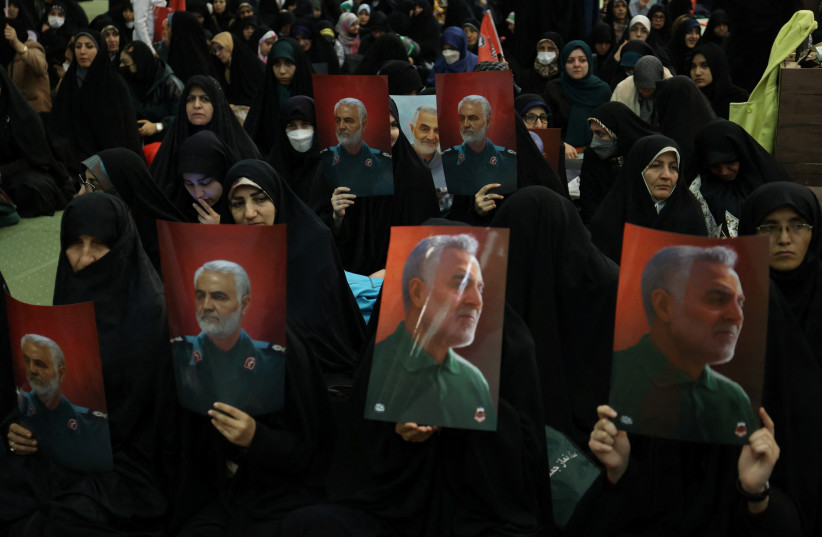US secretly warned Iran before deadly ISIS suicide bombings
The United States secretly warned Iran over a pair of suicide bombings carried out by ISIS that killed close to 100 people near slain IRGC general Qassem Soleimani’s grave earlier this month, the Wall Street Journal reported on Thursday.
The US received intelligence regarding the specific location and time of the planned attack performed by ISIS-Khorasan (ISIS-K), an ISIS-affiliated terrorist organization in Afghanistan. The information that was passed to Tehran should have been sufficient to prevent the attack or at least mitigate casualties; however, Iran failed to do so.
The bombings occured in the southeastern town of Kerman and targeted a crowd that was commemorating the anniversary of the death of Qassem Soleimani, the commander of the IRGC’s Quds force. Soleimani was killed in a drone attack near the Baghdad airport in 2020, ordered by former President Donald Trump.
“Prior to ISIS’s terrorist attack on January 3, 2024, in Kerman, Iran, the US government provided Iran with a private warning that there was a terrorist threat within Iranian borders,” a US official said in a statement.
“The US government followed a longstanding ‘duty to warn’ policy that has been implemented across administrations to warn governments against potential lethal threats. We provide these warnings in part because we do not want to see innocent lives lost in terror attacks.”

Within this “duty to warn” directive, spy agencies are required to warn intended victims of attacks, both US and non-US citizens, unless the intended targets are terrorists or criminals; issuing the warning would endanger US or allied government personnel or intelligence or military operations.
Washington alerts an adversary
In this attack, Washington alerted an adversary, which is not unusual, that has armed several terrorist proxies, including Yemen’s Houthis, as well as other organizations in Syria and Iraq that have carried out at least 150 attacks on American offices since mid-October.
US officials did not say which channels were used to warn Iran, any details of the information, or if this was the first time the warning was provided.
A former US official said that one of the reasons for Washington warning Iran is to prevent Tehran from responding to the attack in a way that could create further regional instability and undermine US interests. Other officials said it could be a way to spark discussions on other foreign policy issues.
Iranian officials did not respond to the US about the warning, an American official commented and also said it wasn’t clear why Iranian officials did not stop the attack.
This attack in Iran was the worst since the 1979 revolution.
ISIS-K first emerged in Afghanistan in 2015 after ISIS terrorists declared a caliphate in Iraq and Syria. After the US departure from Afghanistan, ISIS-K has grown in strength and is currently one of the most dangerous groups in the region, even more than al Qaeda, and has ambitions to target the West.
The director of the Iran program at the Middle East Institute, a Washington think tank, said that the ISIS-K attack was a setback for Tehran, whose strategy is training and equipping proxies in other locations across the Middle East so it does not need to fight its enemies at home.
“ISIS operatives were able to come in and attack in the birthplace of Soleimani,” the director, Alex Vatanka, said. “The headlines wrote themselves: the Islamic Republic cannot protect the Iranian homeland.”





Comments are closed.